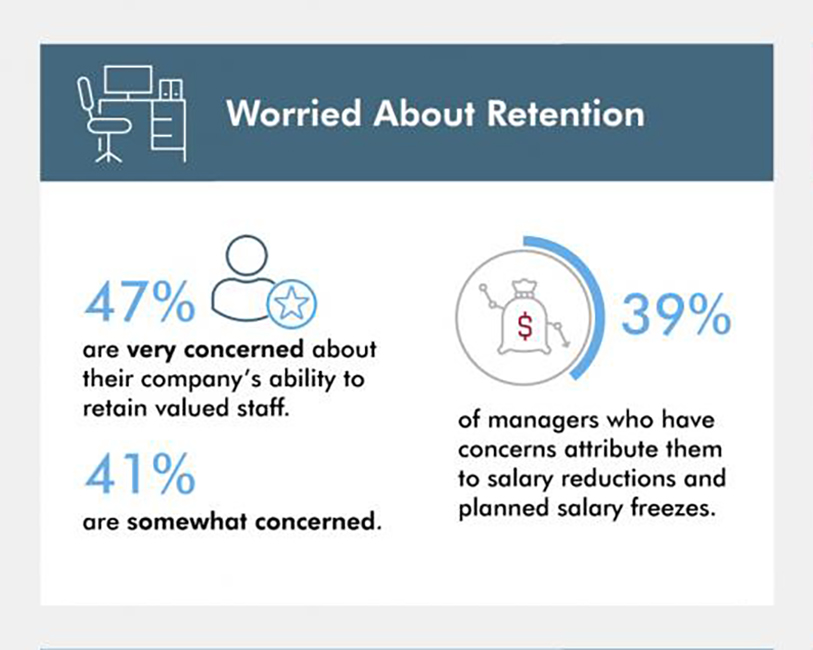As the COVID-19 pandemic continues, the ability to retain valued staff is a primary concern among senior management, according to a new Robert Half survey conducted online from July 10 to August 9, 2020. More specifically, 88 percent of senior managers worry about this — and of those, 39 percent say salary reductions and planned salary freezes are the cause.
Since the pandemic began, 72 percent of companies have maintained or increased pay for new hires and 36 percent of employers are more likely to negotiate salary with candidates now versus one year ago.
“Employees have been stretched to the limit during the pandemic, putting in longer hours and taking on additional responsibilities,” said Paul McDonald, senior executive director of Robert Half, in a press release. “While many companies have supported staff by providing more nonmonetary benefits, like flexible scheduling and enhanced wellness resources, they may have had to impose pay freezes or cuts in order to preserve jobs.”
Despite an 8.4 percent national unemployment rate in August — which is three points lower than California’s unemployment rate of 11.4 percent for the same month — the new research shows that 72 percent of companies are offering new employees pay that meets or exceeds pre-pandemic numbers. (Forty-four percent of senior managers said starting salaries for new hires have held steady since COVID-19 began, and 28 percent said base pay for new hires increased.)
“Companies struggle to find the talent they need to support new business priorities sparked by the pandemic,” McDonald said. “Professionals with in-demand skills know they still have options, and employers realize they need to offer competitive salaries to attract and secure top candidates.”
In fact, 86 percent of senior managers said they’re just as likely to negotiate salary with new hires now as they were a year ago — and of those, 36 percent said they’re more open to such a discussion now versus a year ago. As for company size, the survey found that managers at companies with 500 to 999 employees are more likely to negotiate salary today versus 12 months ago (44 percent), while managers at businesses with 20 to 99 employees are least likely to engage in a compensation discussion (28 percent).
Jessica Mulholland, Managing Editor, CalChamber
CalChamber members can read about Eight Steps for Examining Your Wage Practices in a white paper in the HR Library. Not a member? See what CalChamber can do for you.
Want to access HRCalifornia quickly and more easily? Add a shortcut to your mobile device using these instructions.



